
Edith Abbott was an American economist, statistician, social worker, educator, and author. Abbott was born in Grand Island, Nebraska. Abbott was a pioneer in the profession of social work with an educational background in economics. She was a leading activist in social reform with the ideals that humanitarianism needed to be embedded in education. Abbott was also in charge of implementing social work studies to the graduate level. Though she was met with resistance on her work with social reform at the University of Chicago, she ultimately was successful and was elected as the school's dean in 1924, making her one of the first female deans in the United States. Abbott was foremost an educator and saw her work as a combination of legal studies and humanitarian work which shows in her social security legislation. She is known as an economist who pursued implementing social work at the graduate level. Her younger sister was Grace Abbott.
Social work will never become a profession—except through the professional schools

The Columbia University School of Social Work is the graduate school of social work of Columbia University. It is the nation's oldest social work program, with roots extending back to 1898, when the New York Charity Organization Society's first summer course was announced in The New York Times and began awarding the Master of Science (MS) degree in 1940. With an enrollment of over 900, it is one of the largest social work schools in the United States. The combination of its age and size has led to the School becoming a repository for much of the reference literature in the social work field.
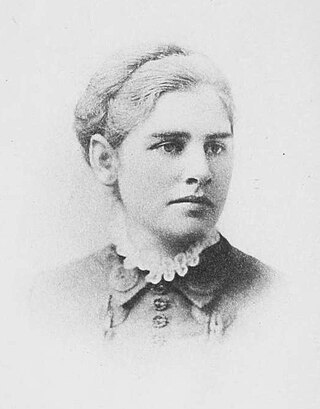
Katharine Ellis Coman was an American social activist and professor. She was based at the women-only Wellesley College, Massachusetts, where she created new courses in political economy, in line with her personal belief in social change. As dean, she established a new department of economics and sociology.

Sadie Tanner Mossell Alexander, was a pioneering Black professional and civil rights activist of the early-to-mid-20th century. In 1921, Mossell Alexander was the first African-American to receive a Ph.D. in economics in the United States. In 1927, she was first woman to receive a law degree from the University of Pennsylvania Law School and went on to become the first Black woman to practice law in the state. She was also the first national president of Delta Sigma Theta sorority, serving from 1919 to 1923.
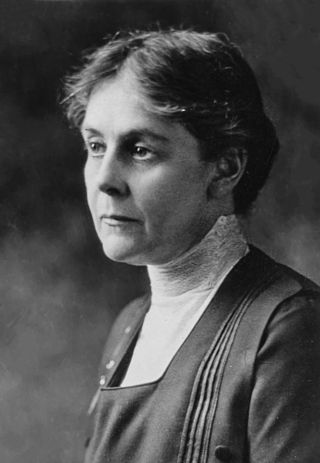
Alice Hamilton was an American physician, research scientist, and author. She was a leading expert in the field of occupational health and a pioneer in the field of industrial toxicology.

Barbara Wootton, Baroness Wootton of Abinger, CH was a British sociologist and criminologist. She was the first of four women to be appointed as a life peer, entitled to serve in the House of Lords, under the Life Peerages Act 1958, after the names of the holders of the first 14 life peerages to be created had been announced on 24 July. She was President of the British Sociological Association from 1959 to 1964.
Barrie Thorne is a professor of sociology and of Gender and Women's Studies at the University of California, Berkeley.
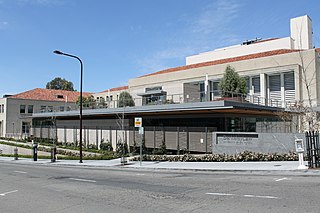
The University of California, Berkeley, School of Law is the law school of the University of California, Berkeley. It is one of 14 schools and colleges at the university. Berkeley Law is consistently ranked within the top 14 law schools in the United States.

Eveline Mabel Richardson Burns was a British-American economist, writer and instructor.
Anne Tamar-Mattis is an American attorney, human rights advocate, and founder of interACT. She currently serves as interACT's Legal Director.
Dr. Harriet Spiller Daggett, Professor Emeritus was an academic, lawyer, schoolteacher and law professor in Louisiana. She was one of the first female members of a law faculty in the US. In 1931, she became the first woman to become a full professor of law at an ABA-approved, AALS-member college, two years before Barbara Nachtrieb Armstrong at the University of California, Berkeley; a third female tenured law professor was not appointed until Margaret Harris Amsler at Baylor University Law School in 1941.

Millicent Hughes Mackenzie was a British professor of education at University College of South Wales and Monmouthshire, the first female professor in Wales and the first appointed to a fully chartered university in the United Kingdom. She wrote on the philosophy of education, founded the Cardiff Suffragette branch, became the only woman candidate in Wales in the 1918 general election, and was a key initiator of Steiner-Waldorf education in the United Kingdom.
Herma Hill Kay was the Barbara Nachtrieb Armstrong Professor of Law at UC Berkeley School of Law. She previously served as dean of Boalt from 1992 to 2000. She specialized in family law and conflict of laws.
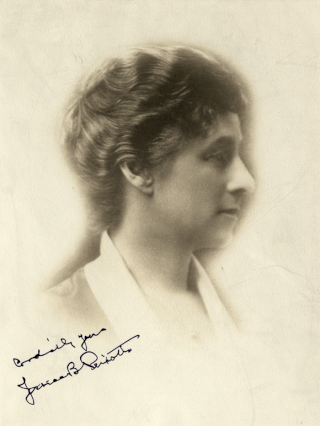
Jessica Blanche Peixotto was a Jewish-American educator and writer.

Gillian L. L. Lester is the 15th Dean of Columbia Law School. She joined Columbia Law School on January 1, 2015, as Dean and Lucy G. Moses Professor of Law. Previously, Lester was acting dean of the University of California, Berkeley School of Law where she had been a professor since 2006. Before that, she was a full professor at the School of Law of the University of California, Los Angeles.
Margaret Thomas Arnold Foster Greer Harris (Gordon) Amsler was a law professor in Texas. In 1955 she became the third female full law professor at a US law school, after Harriet Spiller Daggett in 1931 and Barbara Nachtrieb Armstrong in 1935. She was inducted into the Texas Women's Hall of Fame in 1987.
Ida Craven Merriam (1904–1997) was an American economist and statistician who became "one of the seminal figures in the early administration of the Social Security program", helping to found the nonprofit National Academy of Social Insurance.
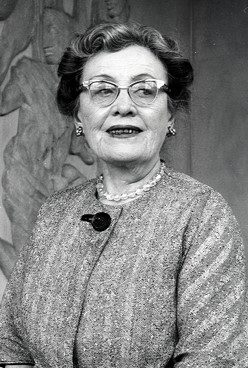
Agnes Fay Morgan was an American chemist and academic. She was the longtime chair of the home economics program at the University of California. Her program was strongly grounded in science, and students admitted into the program were required to have a level of science education that was not typical of home economics programs at the time. Morgan was one of the earliest married female college professors in the United States.
Susan Myra Kingsbury was an American professor of economics and a pioneer of social research.

Mary Raphael Schenck Woolman was an American educator known for her advocacy of vocational education and consumer education, particularly for women. She was one of the first woman faculty members at Teachers College in New York City. She was the founder of Manhattan Trade School for Girls, the first vocational school for women in the United States. She was the author of several books and lectured around the country.













